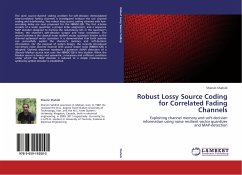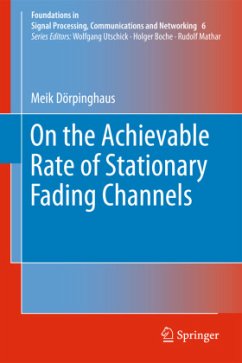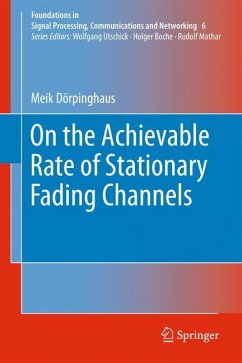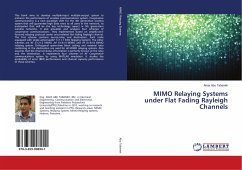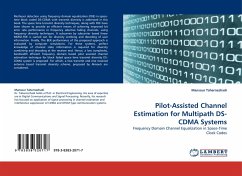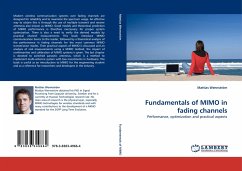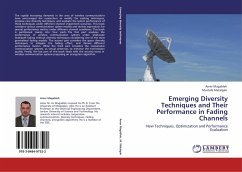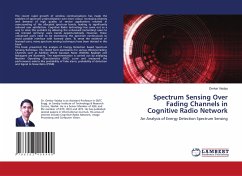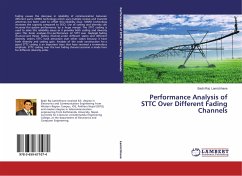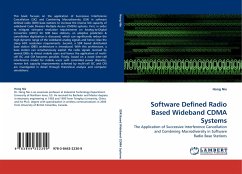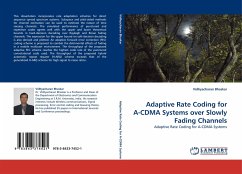
Adaptive Rate Coding for A-CDMA Systems over Slowly Fading Channels
Adaptive Rate Coding for A-CDMA Systems
Versandkostenfrei!
Versandfertig in 6-10 Tagen
39,99 €
inkl. MwSt.

PAYBACK Punkte
20 °P sammeln!
This dissertation incorporates rate adaptation schemes for direct sequence spread spectrum systems. Subspace and pilot-aided methods for channel estimation can be used to estimate the nature of time varying channels. The simulated performance of punctured and repetition codes agrees well with the upper and lower theoretical bounds in hard-decision decoding over Rayleigh and Rician fading channels. The expression for the upper bound on soft-decision decoding is also derived and plotted. An adaptive forward error correction (FEC) coding scheme is proposed to combat the detrimental effects of fad...
This dissertation incorporates rate adaptation schemes for direct sequence spread spectrum systems. Subspace and pilot-aided methods for channel estimation can be used to estimate the nature of time varying channels. The simulated performance of punctured and repetition codes agrees well with the upper and lower theoretical bounds in hard-decision decoding over Rayleigh and Rician fading channels. The expression for the upper bound on soft-decision decoding is also derived and plotted. An adaptive forward error correction (FEC) coding scheme is proposed to combat the detrimental effects of fading in a mobile multiuser environment. The throughput of the proposed adaptive FEC scheme reaches the highest code rate of the punctured convolutional code used. The throughput of the proposed hybrid automatic repeat request (H-ARQ) scheme exceeds that of the generalized H-ARQ scheme for high signal to noise ratios.



